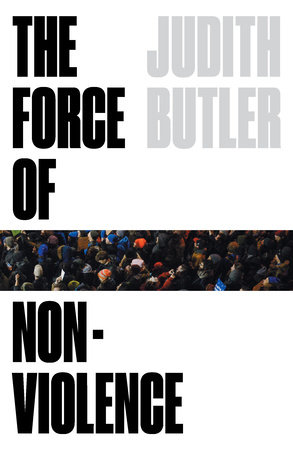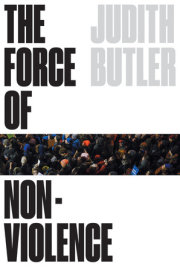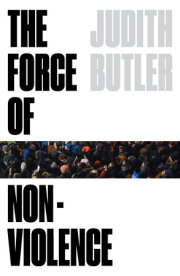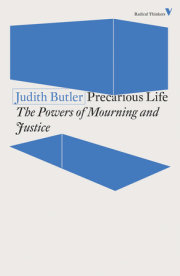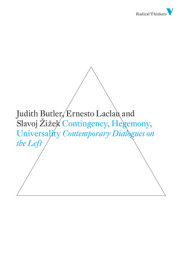“As a strategy of resistance and protest, nonviolence is often seen as passive and resolutely individual. Butler’s philosophical inquiry argues that it is in fact a shrewd and even aggressive collective political tactic.”
—New York Times
“Perhaps the most influential and widely travelled feminist in the Western academy … [Butler] carefully, with assertive toughness, combats the hatred, fear and rage of those who respond violently to her continuous commitment to confronting normative patterns of coercion with calls for concerted actions of resistance.”
—Lynne Segal, Times Higher Education
“Judith Butler lucidly enumerates the obstacles nonviolence faces in a time when it is sorely needed. Drawing on works from Frantz Fanon, Michel Foucault, Walter Benjamin, and Sigmund Freud, she makes a fresh new case for what destructive obstacle our pervasive individualism is to nonviolent action—and the change possible with it.”
—John Freeman, Boston Globe
“[The Force of Nonviolence] walks us through a route of emancipation that has not been approached previously, but which seems, once pursued, recognisable and familiar.”
—LSE Review of Books
“Drawing on thinkers from Sigmund Freud to Frantz Fanon, Butler untangles deep-seated misunderstandings about what constitutes violence and nonviolence, to suggest new paths forward.”
—Jewish Currents
“Vital, and chillingly timely.”
—Hettie Judah, i newspaper
“Judith Butler has achieved a status that few other living academics have acquired: For each published work that she issues, reams of discussion and critique are produced in response, so much so that they have engendered microdisciplines in the many fields in which she is an expert: gender, politics, literary studies, and more.”
—Francis Wade, Nation
“[The Force of Nonviolence] avoids rehashing tired moral and strategic condemnations of violence. Butler reminds us that what is deemed violence or nonviolence is a matter of interpretation and that the state maintains a monopoly on deciding which forms of violence are legitimate, and which acts are understood to constitute violence at all.”
—Natasha Lennard, Bookforum
“A text with a vision for another kind of world, one that refuses to take refuge in the comfort of moral platitudes.”
—Australian Book Review
“Presents a hopeful philosophical position for evolving architecture competent in responding to society’s issues, all the while being intertwined within it.”
—Architectural Review
“Invaluable.”
—Henrietta Cullinan, Peace News
“Butler’s argument both builds on and contributes to a wider feminist literature concerned with developing ways of social and political living that stem from a relational understanding of the self.”
—Alister Wedderburn, Radical Philosophy

